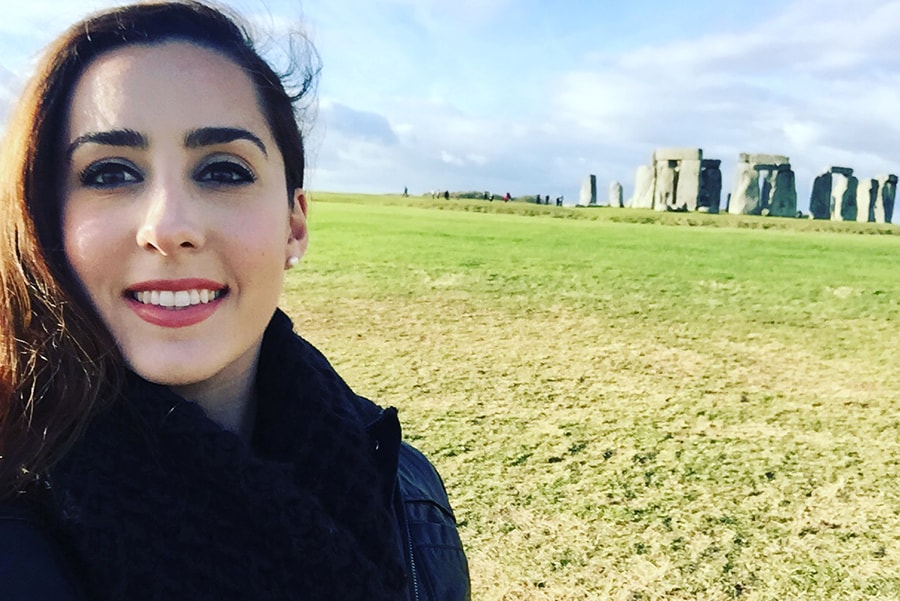
Ph.D. Graduate Collaborates Internationally on Microscope Research Techniques
By Alexandra George
Media Inquiries- Materials Science & Engineering
- 412-268-7240
Carnegie Mellon University's Madeleine Kelly recently spent two weeks at the University of Manchester in England, where she collaborated with top scientists in materials science and engineering on the use of a powerful electron microscope.
"In grad school, I wanted the opportunity to do a collaboration abroad or go to different conferences where I could travel," said Kelly, who earned bachelor's degrees from CMU in materials science and engineering and engineering and public policy, and received her doctorate in materials science and engineering in June. "Traveling is a good opportunity to get out of your comfort zone and to work independently."
Kelly, now a postdoctoral researcher at CMU, spent two weeks in Manchester collaborating with Grace Burke, director of the Materials Performance Centre, and Xiangli Zhong, the experimental officer for the University of Manchester's FEI HeliosTM PFIB Dual-Beam. The powerful microscope is novel: only a few exist. One of them is housed at Carnegie Mellon, where Kelly uses it to research ceramic materials.
"At the University of Manchester, I not only learned a lot from their experts," Kelly said, "but I was also able to teach them about processing three-dimensional data and show them some statistical characterization that can be done on three-dimensional volumes."
Kelly received the Joseph Goldstein Scholar Award, sponsored by the Meteoritical Society and the publisher Springer, which along with a grant through Kelly's adviser, Materials Science and Engineering Professor and Department Head Greg Rohrer, provided funds for the trip. The Goldstein Award promotes career advancement for early career members of the Microanalysis Society, increases interactions of junior and established microanalysts, and advances the state-of-the-art in microanalysis measurements.
"This experience abroad was completely unique," Kelly said. "It was different from something like a conference where I might only have the chance to present my research. Instead, I was able to go somewhere else and actually do research, find different collaborations and use an instrument hands-on."